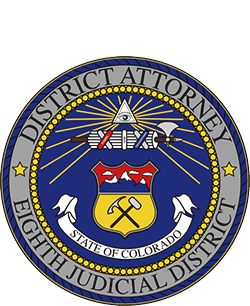Mandatory Protection Order
The testimony of victims and witnesses is crucial for justice. To protect them, the court issues a mandatory protection order at the defendant's first appearance (Colorado Revised Statutes Section 18-1-1001). This order prevents anyone from harassing, molesting, intimidating, retaliating against, or tampering with a witness or victim. The order stays in effect until the case is resolved, the sentence is completed, or the defendant is acquitted.
No Contact Order
A no contact order is a condition that may be part of a standard protection order in cases like domestic violence and certain crimes against people, such as sexual assault, physical assault, child abuse, and crimes against at-risk adults. The defendant may be required to:
- Have no direct or indirect contact with the victim
- Stay away from the victim's home or other places the victim or witness might be
- Leave the residence
- Not possess firearms or other weapons
- Not consume alcohol or controlled substances
- Follow any other orders the court deems necessary to protect the victim's safety
If you have questions about a no contact order or need to know if one is in place for your case, contact the Victim/Witness Division at (970) 498-7285 or the victim/witness specialist assigned to your case.
Civil Protection Order
A civil protection order, also known as a restraining order, can be requested from the court in a separate civil action. View instructions from the Colorado Courts on filing for a civil protection order.
The Eighth Judicial District Self Help Center, located in the Larimer County Justice Center, helps people who are representing themselves in legal proceedings. Learn more about Self Help Resources.
While the District Attorney's Office automatically notifies victims about critical stages of the case, other agencies require victims to request, or opt-in, for notifications. These notifications can include the offender's current location, transfers, escapes, death while in custody, parole hearings, and release dates. The agency responsible for these notifications depends on the offender's sentence. The District Attorney's Office will tell you which agency to contact for post-conviction notifications. If the defendant is in the custody or control of one of the following agencies and you want to be notified, you must enroll with the agency directly.
Department of Corrections
Probation
Colorado Mental Health Institute
Local Detention Facilities
- Colorado VINE – Automated notification system (both Larimer and Jackson County Sheriff's Departments participate)
Although they occur rarely, acts of intimidation and/or threats against witnesses of crime are taken very seriously by the Eighth Judicial District Attorney's Office, and by the State of Colorado. In 1995, The Colorado General Assembly created a program for the purpose of facilitating protective measures for victims and witnesses involved in the investigation and prosecution of criminal cases. In 2006, the program was named the Javad Marshall-Fields and Vivian Wolfe Witness Protection Program.
Relocation, housing, food, travel, and security expenses may be covered for a temporary amount of time, when it has been determined that the safety of a witness or the witness' family is jeopardized due to their involvement in the community justice system. Assistance from this program, unlike the federal witness protection program, is not permanent, and cannot assist with changing a person's identity.
Funds from this program must be requested through the District Attorney's Office by a law enforcement agency, or by the deputy district attorney assigned to prosecute the criminal case. Requests for expenses covered by this program are reviewed, and approved by a three-member Witness Protection Board. This board is made up of the Attorney General, the Executive Director of Public Safety, and the Executive Director of the Colorado District Attorney's Council or their respective designees.
If you are threatened, intimidated, or asked not to testify because you are a witness in a case, please call the police as soon as possible and then inform the District Attorney's Office. If you believe you are in danger, call 911.

